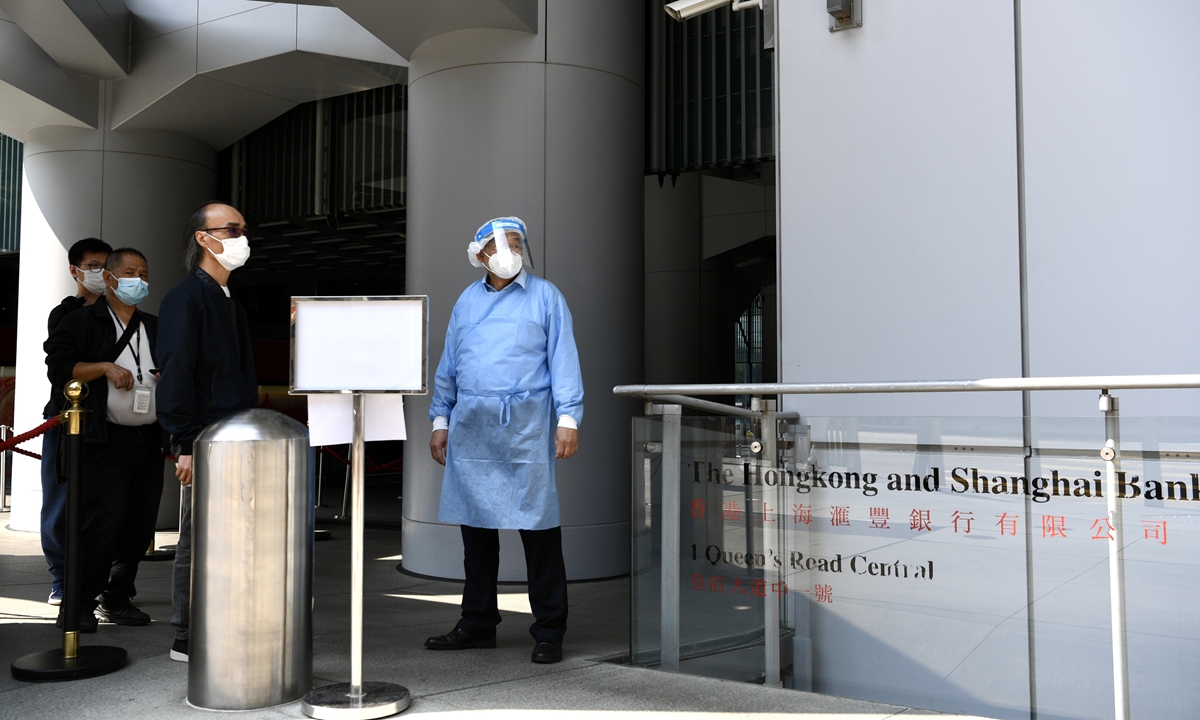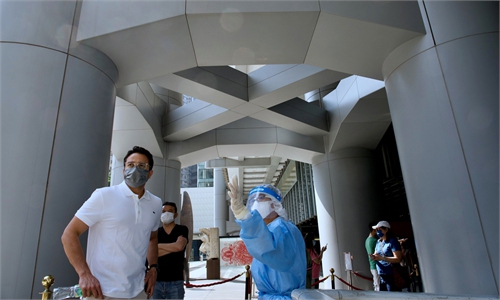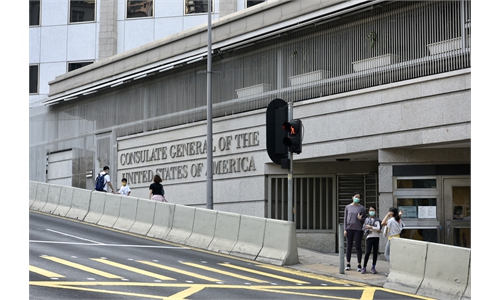‘More understanding needed amid epidemic’ – expert defends HK quarantine strategy against CNN report

HSBC employees line up for a COVID-19 test at the bank's headquarters in Hong Kong on Wednesday. HSBC closed its Hong Kong headquarters after three coronavirus infections were confirmed. Photo: VCG
Anti-epidemic policies in Hong Kong should be given more understanding amid a public health crisis, experts said, after some media including CNN made sensational reports questioning whether the city should isolate COVID-19 infected children for treatment.
After media reports depicted stories of infected children separated from parents, Hong Kong health officials defended the practice of treating children in an isolation hospital, saying prior consent will be sought from parents and there is no question of parents not knowing beforehand.
As to whether children would be admitted to a hospital alone, the hospital will provide options for parents who test negative for COVID-19 to accompany their confirmed children staying in the same isolation room, the Hospital Authority said in a statement.
Any physical restraint of pediatric patients will only be undertaken for their safety with prior consent from their parents or guardians, the Hospital Authority in Hong Kong said.
CNN tried to tell a "heartbreaking" story citing a mother named Ariel, whose two boys are asymptomatic patients. "The brothers - ages 5 and 1 - were wearing vests that were tied to their beds to restrain them," it wrote.
Surprisingly, the media regarded the HKSAR government's normal treatment and quarantine of confirmed and close contacts, as well as compulsory testing in epidemic neighborhoods, as some highly unusual phenomena, even dubbing it as "among the strictest" in the world. It even criticized the quratine strategy as "overzealous and inhumane" because people are stuck in a room "as small as 18 square meters."
Jin Dongyan, a professor at the School of Biomedical Sciences at the University of Hong Kong, told the Global Times that the quarantine policy in Hong Kong regarding the isolation of children is flexible and has already taken humane considerations into account.
It is more likely there was some misunderstanding, and the media should not sensationalize it. More understanding is needed given the epidemic at large, Jin said.
To cater for the specific needs of children including babies, the authorities provide a wide range of items in quarantine centers that accept minors, including cots, blankets, bumpers, clothes, cutlery, toiletries, diapers, baby food and snacks, as well as coloring pencils and coloring books, the Hong Kong government said.
The COVID-19 outbreak in Hong Kong has rebounded after a surge that began at a local gym popular with foreigners. The latest outbreak has caused 228 locally transmitted cases with six newly reported on Thursday.
Hong Kong has experienced at least four waves of the epidemic for months, and drawing from past lessons, the adoption of those quarantine and testing measures are reasonable for the goal of ensuring the safety of the entire community, Chinese observers said, adding that anti-epidemic measures that threaten individual freedoms should be given more understanding.
The Department of Health clarified its position saying that the measures aim to safeguard the well-being of the community as a whole.
Also, every decision that the government made in cases where children were involved was in the interests of the children and their families, it said.



